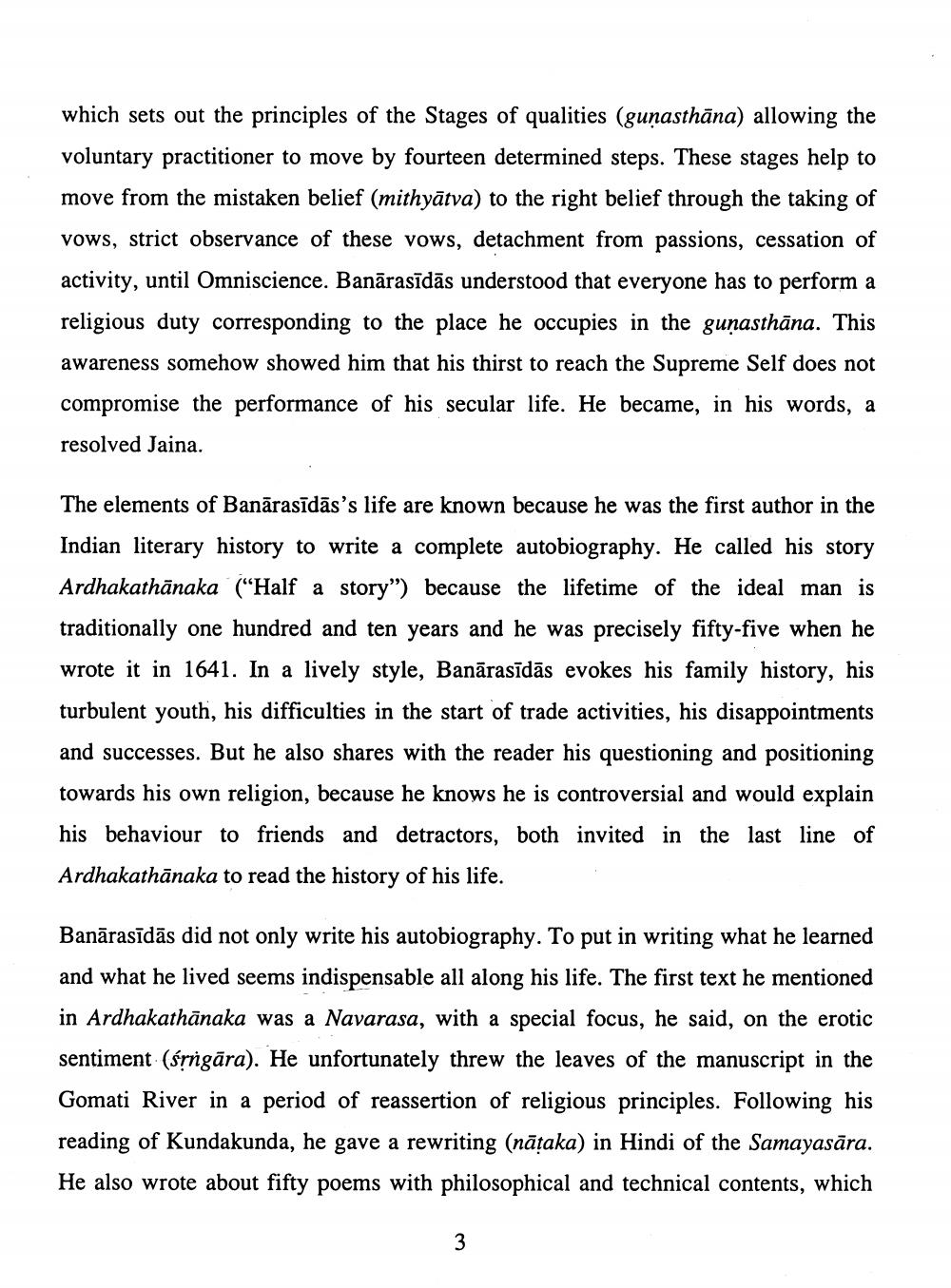Book Title: Dhyana Battisi Author(s): Jerome Petit Publisher: Hindi Granth Karyalay View full book textPage 7
________________ which sets out the principles of the Stages of qualities (gunasthāna) allowing the voluntary practitioner to move by fourteen determined steps. These stages help to move from the mistaken belief (mithyātva) to the right belief through the taking of vows, strict observance of these vows, detachment from passions, cessation of activity, until Omniscience. Banārasīdās understood that everyone has to perform a religious duty corresponding to the place he occupies in the guṇasthāna. This awareness somehow showed him that his thirst to reach the Supreme Self does not compromise the performance of his secular life. He became, in his words, a resolved Jaina. The elements of Banārasīdās's life are known because he was the first author in the Indian literary history to write a complete autobiography. He called his story Ardhakathānaka (“Half a story') because the lifetime of the ideal man is traditionally one hundred and ten years and he was precisely fifty-five when he wrote it in 1641. In a lively style, Banārasīdās evokes his family history, his turbulent youth, his difficulties in the start of trade activities, his disappointments and successes. But he also shares with the reader his questioning and positioning towards his own religion, because he knows he is controversial and would explain his behaviour to friends and detractors, both invited in the last line of Ardhakathānaka to read the history of his life. Banārasīdās did not only write his autobiography. To put in writing what he learned and what he lived seems indispensable all along his life. The first text he mentioned in Ardhakathānaka was a Navarasa, with a special focus, he said, on the erotic sentiment (śrngāra). He unfortunately threw the leaves of the manuscript in the Gomati River in a period of reassertion of religious principles. Following his reading of Kundakunda, he gave a rewriting (nāțaka) in Hindi of the Samayasāra. He also wrote about fifty poems with philosophical and technical contents, whichPage Navigation
1 ... 5 6 7 8 9 10 11 12 13 14 15 16 17 18 19 20 21 22 23 24 25 26 27 28
